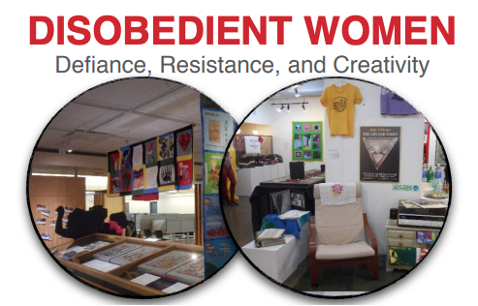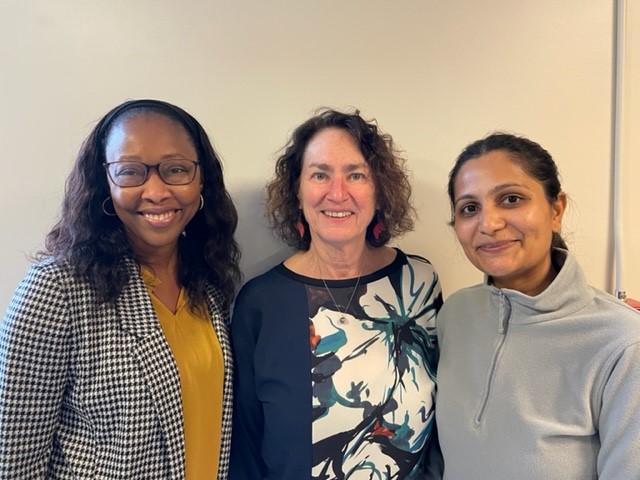Despite the inclusion of gender equality as the fifth of the UN’s (2015) Sustainable Development Goals, a 2019 UN study recently noted that the journey toward gender equality is an “unfinished business in every single country of the world” (p.1). The Generation Equality Forum (2021) has described gender discrimination as the most enduring and “defining inequality of our time”; issues caused by rising fundamentalist and fascist agendas (Shameen, 2021) have attempted to re-impose patriarchal heteronormative family values, and gender-based violence is on the rise.
In Canada, the Canadian Association of the Study of Women and Education (CASWE) has been creating spaces for feminist scholarship and pedagogy for three decades – spaces that include equity and inclusion in education, gender identities and gender expression, feminist leadership, gendered methodologies, and intersectionalities. These spaces allow researchers to examine ways in which we can collectively create and fully educate an alternative vision and consciousness of how a gender-equitable world could look, feel, and function.
As women from diverse cultural, social, and geopolitical contexts (India, Canada, and Jamaica), our research has individually and collectively challenged gendered intersectional norms and practices – particularly, the coloniality of gender constructions that continue to impose restrictions on women’s bodies, intellectual capabilities, and roles. Through our work, we seek to disrupt hegemonic, heteronormative, and colonized discourses and practices that have subverted women’s voices, while providing a framework for understanding how privilege and oppression are experienced simultaneously.
Even though each of us comes from different socio-cultural contexts and recognizes the distinct and different ways women experience inequity and oppression, we share a common belief in the increasingly urgent need for and relevance of gender equity work within our diverse and collective spaces.
As oppression throughout the world continues to grow and become evident at the intersections of a multitude of sidelined identities, the importance of feminist work becomes all the more significant.
Disrupting
In her research and teaching, Tanya uses graphic novels, photovoice, and other forms of storytelling to challenge, re-story, and re-present racialized women’s experiences in colonized contexts, particularly higher education. Through these compelling and creative avenues, women of colour are liberated from the periphery as their voices and stories become the force for change. By engaging in critical discourse analysis embedded in feminist intersectionality, this work questions colonized institutional policies and practices that subvert the work of women in academia.
Creating
Nabila uses workshops as a medium to facilitate the creation of safe spaces for young women of colour from colonized contexts of public schools in India. These intersectional spaces become avenues for young women to exercise agency and create much-needed communities in their resistance against oppressive and misogynist practices. Young women are highly policed within the contexts that Nabila has worked in, and her work demonstrates how affective activism can help young women to build communities and relationships in the face of shared oppression through gendered hierarchies and their accompanying expectations.
Educating
Public exhibitions are a powerful tool in raising awareness of gender discrimination, misogyny, and abuse of women. Connecting with the International Association of Women’s Museums (IAWM), feminist scholars are creating an exhibition entitled “Cultures of Headscarves” in an attempt to draw local and international attention to misinformation, mistreatment, and inequities that abound for women of diverse cultures, classes, gender orientations and nationalities. The importance of such work is exemplified as countries around the globe continue to scrutinize women for wearing head coverings, such as the hijab worn by some Muslim women.
As women are denied entry into public spaces or prohibited from exercising their basic rights to education and work in the name of homogeneity or sameness, intersectional issues of feminism surface. Disruption of images of women as belonging to monolithic oppressed socio-cultural or religious groups can occur through exhibitions, workshops, and pedagogical practices. A 2017 exhibition, “Disobedient Women: Defiance, Resistance and Creativity Past and Present,” curated by colleague Dr. Darlene Clover of the University of Victoria, drew attention to the defiant acts of women who challenged their silencing and misrepresentation in the Canadian 150 sesquicentennial celebration.

Through diverse venues, conferences, and workshops, CASWE provides opportunities for women to share research that shines a light on issues of gender inequities, injustices, and resistances in Canada and throughout the world. As members of CASWE’s executive, Kathy, Tanya, and Nabila continue to be encouraged by such opportunities to connect with women from local, national, and international contexts who are all striving to finish ‘the business of gender equity’ through disruption, creation, and education.
CASWE is an association of the Canadian Society for the Study of Education (CSSE).

Tanya Manning-Lewis, Kathy Sanford, and Nabila Kazmi.
References
Generation Equality Forum (2021). Accelerating progress for gender equality. Retrieved from
https://forum.generationequality.org/home.
Shameen, N. (2021). Rights at risk: Time for action. AWID Toronto.
United Nations (2019). UN75 2020 and beyond: Shaping our future. United Nations.
https://esaro.unfpa.org/en/news/un75-2020-and-beyond-shaping-our-future-together
